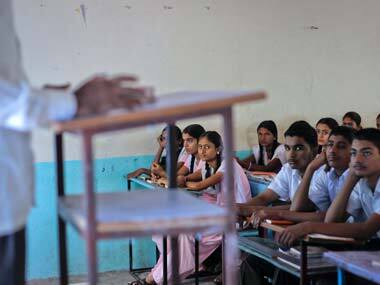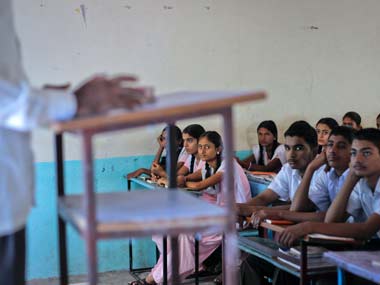In its sternest warning yet the Delhi High Court has indicated that it will not hesitate to suspend the ongoing admissions process in private schools – a system formally endorsed by the Centre and the Delhi government - if it is found to be in violation the Right to Education Act (RTE Act). An admission process based on a ‘point-system’ that gives preference to categories such as alumni (where the applicant’s parents have studied in the school), sibling (where the applicant has a sibling in the same school) has been challenged in the Delhi High Court as being a blatant violation of the RTE Act. “The RTE Act (Section 13) not only prohibits but also makes punishable the adoption of a screening procedure. The Act is very clear that schools cannot discriminate between two children on any grounds. Only a draw of lots can be the criteria along with neighbourhood – which is at the heart of Act, for admission” says Ashok Agarwal, High Court advocate representing NGO Social Jurist that has filed the PIL. [caption id=“attachment_600879” align=“alignleft” width=“380”]
 Will the high court strike down the admission process? Reuters[/caption] Ironically, in formulating a point-system that has been widely criticized by parents as being discriminatory private unaided schools were merely following guidelines issued by the government. The Delhi government’s notification issued on 15 December, 2010, quoting the Human Resource Development’s Ministry’s guidelines giving unaided schools the freedom to come up with their own criteria for admissions, states, “Schools are free to identify any category based on policy/principles that are fair, just and reasonable within the ambit of the RTE Act.” Interpreting the central government’s guidelines, the Delhi government goes on to add that, “Keeping in view the unique background, ethos and objectives of the schools in Delhi….the categorisation of the applicants should be on the basis of a criteria, developed in terms of the objectives of the school and can include sibling, transfer case, single parent and alumni.” (Read notification
here
) Reacting to the two notifications, the Delhi High Court came down heavily on the Centre and the Delhi government on Wednesday, warning them against diluting the RTE Act. “You (HRD ministry and Delhi government) cannot the dilute the provision of the RTE Act. By allowing them (schools) to formulate their own admission criteria, you are giving preference to one child over another, which is against the Act,” the High Court said. On what the implications would be, should the High Court quash the government notifications, Agarwal said: “It will apply to all private unaided and non-minority schools across the county. We have challenged the central government notification.” For one, quashing of the notifications will imply that the ongoing admission process in Delhi, which began on January 1, will stand cancelled. A probability the High Court hinted on, on Wednesday. The High Court’s decision is expected today.
Will the high court strike down the admission process? Reuters[/caption] Ironically, in formulating a point-system that has been widely criticized by parents as being discriminatory private unaided schools were merely following guidelines issued by the government. The Delhi government’s notification issued on 15 December, 2010, quoting the Human Resource Development’s Ministry’s guidelines giving unaided schools the freedom to come up with their own criteria for admissions, states, “Schools are free to identify any category based on policy/principles that are fair, just and reasonable within the ambit of the RTE Act.” Interpreting the central government’s guidelines, the Delhi government goes on to add that, “Keeping in view the unique background, ethos and objectives of the schools in Delhi….the categorisation of the applicants should be on the basis of a criteria, developed in terms of the objectives of the school and can include sibling, transfer case, single parent and alumni.” (Read notification
here
) Reacting to the two notifications, the Delhi High Court came down heavily on the Centre and the Delhi government on Wednesday, warning them against diluting the RTE Act. “You (HRD ministry and Delhi government) cannot the dilute the provision of the RTE Act. By allowing them (schools) to formulate their own admission criteria, you are giving preference to one child over another, which is against the Act,” the High Court said. On what the implications would be, should the High Court quash the government notifications, Agarwal said: “It will apply to all private unaided and non-minority schools across the county. We have challenged the central government notification.” For one, quashing of the notifications will imply that the ongoing admission process in Delhi, which began on January 1, will stand cancelled. A probability the High Court hinted on, on Wednesday. The High Court’s decision is expected today.
Delhi school admissions: Is govt guilty of violating RTE Act?
Pallavi Polanki
• January 24, 2013, 14:32:36 IST
The admission process being used by many schools where a ‘point-system’ is used has been challenged and the Delhi High Court hasn’t taken a very kind view of it.
Advertisement
)
End of Article